July 6, 2020 – Following the announcement of the cancellation of the 2020 ICCAT Commission meeting, scheduled to be held in November, the Global Tuna Alliance has today published a ‘to do list’ of priorities for contracting parties and co‐operating non‐contracting parties (CPCs) to implement to ensure the long-term sustainability of fisheries in the region.
The 22nd session of the International Commission for the Conservation of Atlantic Tunas (ICCAT), scheduled to take place from 23rd-30th November has been cancelled due to the impacts of Covid-19. The Executive Secretary of ICCAT has requested a list of measures which, if there is agreement, can be carried over for one year, and a list of those measures for which redrafting is considered vital.
Accordingly, the Global Tuna Alliance (GTA), an inclusive constituency of companies with a major interest in improving the sustainability of the tuna sector, is calling on ICCAT CPCs to focus their energies on addressing the following priorities:
Harvest Strategies
ICCAT needs to accelerate action on comprehensive, precautionary harvest strategies to be implemented simultaneously with the development of precautionary reference points and harvest control rules.
Adhering to best practices of modern fisheries management, consistent with the United Nations Fish Stocks Agreement and the Food and Agricultural Organization Code of Conduct for Responsible Fisheries, harvest strategies are an essential component of the Global Sustainable Seafood Initiative’s (GSSI) benchmarking tool. Responsible members of the supply chain, including GTA Partners, are continually increasing their sourcing from tuna fisheries certified by schemes that are internationally recognized by the GSSI. Accordingly, sourcing may be impacted should harvest strategies not be implemented.
100% Observer Coverage
ICCAT is to be applauded for decisions made on observer coverage at the 2019 meeting:
- Requiring 100 percent observer coverage, year-round, on purse seine vessels targeting tropical tunas
- Increasing observer coverage on longline vessels over 20 meters to 10 percent in 2022
- Requiring the development of minimum standards for electronic monitoring by 2021
However, without 100% observer coverage on industrial tuna fishing vessels, there are too many unknown risks lurking across tuna supply chains.
GTA is urging ICCAT to implement an 100% observer coverage requirement (human and/or electronic) in all industrial tuna fisheries, including all those engaged in at sea transshipment, by 2024.
Reforming the Regulations of at-sea Transshipment
At-sea transshipment of catch between vessels plays a large and important role in the global commercial fishing industry. Each year, hundreds of refrigerated cargo vessels take tuna caught by thousands of longline fishing vessels and bring it to shore for processing.
There is not enough independent data, appropriately and timely shared, nor are other regulations up to date, to allow for effective monitoring and compliance. These gaps create risks for labour and human rights abuses, can reduce observer safety, and create opportunities for IUU fishing activities, fraud, and catch laundering. Insufficient monitoring can also undermine traceability, the provision of required data collection, and effective implementation of bycatch mitigation measures.
As well as adopting 100% observer coverage requirement (human and/or electronic) on all vessels engaged in at sea transshipment, by 2024, ICCAT should adopt amendments to existing transhipment regulations to bring in line with best practices.
Develop a Comprehensive FAD Management Program
FADs use has increased significantly in recent decades, boosted by technologies that also have made FADs more effective. A 2015 Pew study estimated that as many as 121,000 FADs may be deployed annually. Currently over 40% of the global tuna catch is caught using floating objects, including FADs.
While ICCAT has begun to grapple with how best to manage FAD use (a two-month FAD closure in 2020 and a three-month FAD closure in 2021 throughout the Convention Area and a reduction of operational FAD buoys from 500 down to 300 by 2021) current measures remain inadequate.
The GTA calls upon ICCAT to adopt the measures identified in the Global NGO Tuna Forum’s position on better FAD Management. While not comprehensive, these measures are critical to ensuring that at-sea FAD fishing is better-managed and more transparent.
Mako Shark Conservation
Shortfin mako is classified by IUCN as Endangered and listed under CITES. Recovery will likely take ~25 years even if fishing mortality could be cut to zero (53% chance of rebuilding by 2045).
The ICCAT SciCom recommended a ban on retention of North Atlantic shortfin makos and 2001t shortfin mako catch limit for the South Atlantic, but in 2019 the EU, US, and Curaçao offered complex counter proposals that fell far short of scientific advice and would allow hundreds of tons of North Atlantic makos to continue to be landed.
ICCAT should agree to protect shortfin mako sharks by heeding scientists’ warnings about North Atlantic depletion and South Atlantic imminent risk. Specifically:
- Immediately prohibit all shortfin mako retentions.
- Ensure specific scientific advice for minimizing incidental mortality is developed and implemented as a matter of urgency.
Commission Meeting
While the impacts of Covid-19 have stopped the 22nd session of ICCAT from taking place, fishing for tuna continues in the convention area. There remains an urgent need for delegations to meet together and carry out the objectives of the Convention. We are calling for a rescheduled Commission meeting to take place in the new year.
